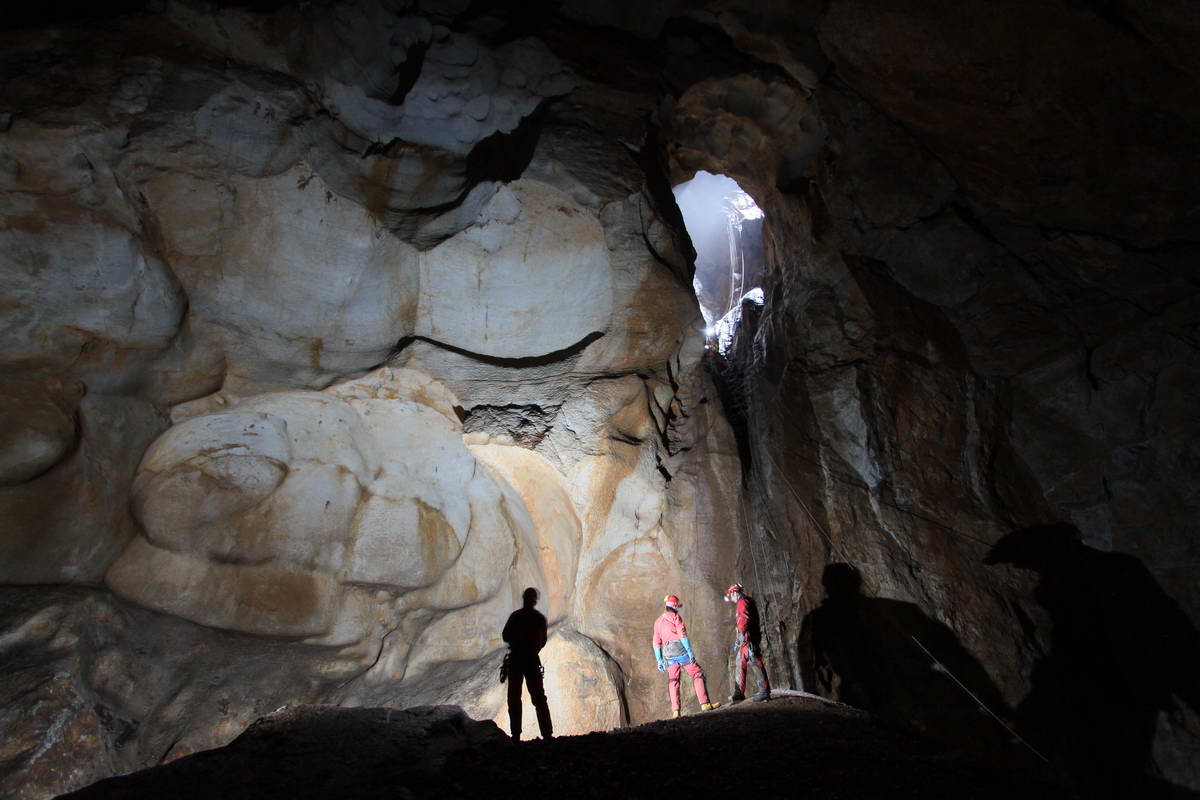Cave Rescue
The Cave Rescue activity is defined and regulated by Law no. 402/ 2006. Speleological Rescue is a complex task due to the multitude of natural and anthropogenic factors that can have an overwhelming influence on the success of rescue actions . The majority of these factors cannot be controlled , and therefore the cave rescuer must be prepared to face all this complexity, taking in consideration:
• Cave rescuer safety
• Teammates safety
• Victim safety
For this reason the preparation and certification of a cave rescuer is required to be a very complex and laborious task. In the Bihor County Mountain and Cave Rescue Service this process has been going so:
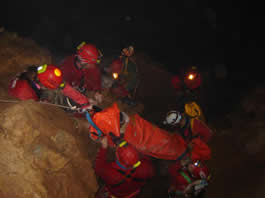 |
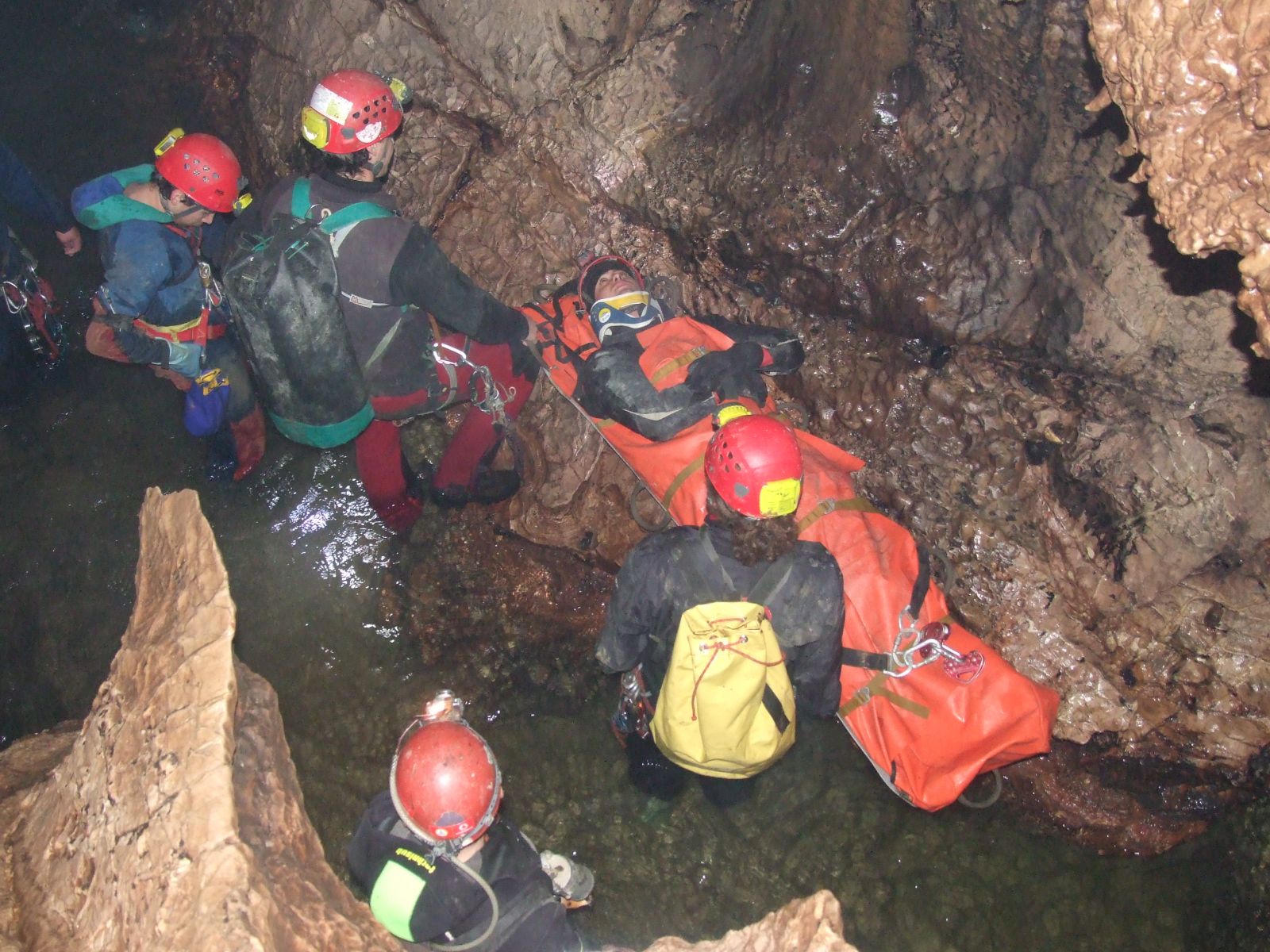 |
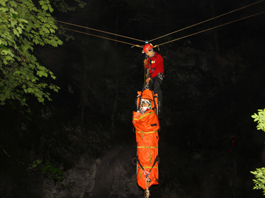 |
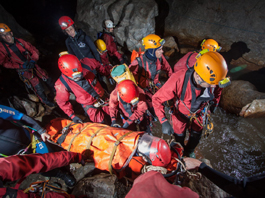 |
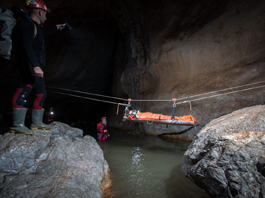 |
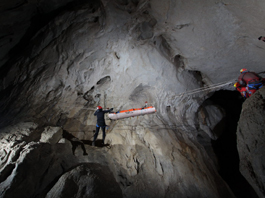 |
Post-graduate
A person wishing to become a cave rescuer aspirant must meet the following conditions:
• Minimum age 18 years
• Minimum experience in practicing caving, proficiency level TSA 2 ( Alpine Caving Techniques – advanced level). Post-graduate lasts a minimum of three years, during which the aspirant must complete the courses of Cave Rescue National School, “Cave Rescuer - Technician" level.
During post-graduate period, the aspirant will participate annually in one Regional and one National Cave Rescue exercise.
At the end of National Cave Rescue School "Technician" level, the exam is consisting of technical module - theory and practice and medical module - theory and practice. The minimum grade for graduation is 7.
Further, with a recommendation from a County Mountain and Cave Rescue Service the Technician can continue this form of training by participating in the following levels: Team Leader (coordinates team of Technicians) or Technical Adviser (coordinate county-level activities, prevention and rescue).
Active Cave Rescuer
After graduating from the Cave Rescue National School, the rescuer receives a diploma , document valid for 3 years. Every three years cavers who have training in the cave rescue activity will be evaluated on the technical level of training, for re-certification. They will need to accumulate a minimum of 70 points for 3 years as a result of participating in Cave Rescue exercises, internships, schools or real cave rescue actions .
If the rescuer will not accumulate the 70 points required in minimum period of 3 years, he would support a new recertification exam .
Exceeding the validity of the diploma without scoring minimal points or not promoting the exam of reassignment, the certificate is withdraw.
The Cave Rescue activity in Bihor County Mountain and Cave Service follows two main directions:
Prevention
Complex activities consisting in:
• Preventive patrolling in karst areas with heavy tourist traffic and increased accident potential.
• Assisting preventive camps, schools and internships with caving specific.
• Build / Restoration and maintenance of technical equipment for underground intervention.
• Monitoring caving tourist traffic through the Approval Cave Rescue Procedure for caving clubs, associations and groups visiting the Bihor karst area.
Operative intervention
Rescue / evacuation of injured or sick persons in the underground environment.
• Provide immediate medical help.
• Evacuation of persons injured in the underground caving environment to the first location where they can be assisted by emergency medical crew.
• Participation, along with other structures empowered to help the people affected by calamities or disasters, not only in the mountains.



